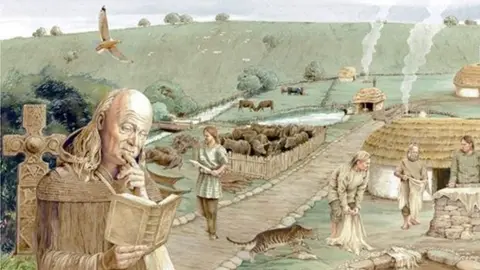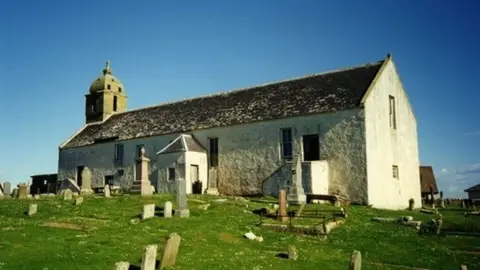Pictish community lived by the sea but ate no fish
 John Tosca
John ToscaA Pictish community in the Highlands ate beef, lamb and pork but not fish even though they lived next to the sea.
Archaeologists made the discovery from analysing the bones of skeletons at a site in Easter Ross.
The Picts were seafarers and had the skills to catch fish but experts believe they chose not to because they revered them.
Dr Shirley Curtis-Summers studied 137 skeletons buried under Portmahomack's old Tarbat Parish Church.
The remains represent hundreds of years of Highlands history, including Pictish periods starting from the 6th Century.
 Tarat Discovery Programme
Tarat Discovery ProgrammeThe large-scale isotopic analysis found the Picts' diet contained barley and some beef, lamb and pork. The meat was from animals that were farmed or hunted.
But fish from rivers or the sea were not part of their diet.
Dr Curtis-Summers, of Bradford University, said the Picts may have believed fish to be magical, pointing to the carvings of salmon the Picts made on standing stones.
She said this belief may have come from old superstitions and folklore.
Later, some Pictish monks who set up a monastery at Portmahomack did eat fish but only in small amounts.
By mid-medieval times fish was being consumed and people in the area were also trading in fish.
